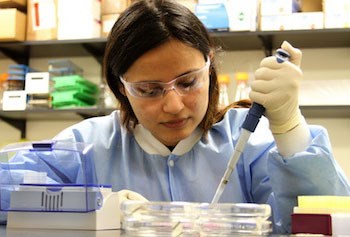Degrees to Help Meet Growing Need for Professionals

02/06/2014
By Karen Angelo
Responding to the growing demand for public health professionals, the College of Health Sciences introduced new bachelor’s and master’s public health degree programs. Prospective students may apply now to enroll this fall.
The new public health programs were developed in response to the growing shortage of workers in the region and nationwide. Trends fueling the need include a greater public interest in health promotion and disease prevention, an aging population, and an increase in the number of people retiring from jobs in the public health field.
More professionals who are prepared to prevent disease and promote health in the population as a whole are in demand. More than 250,000 additional public health workers will be needed in the U.S. than will be available by 2020. In Massachusetts, employment in public health occupations is expected to grow 25 percent by 2050.
“Our goal is to produce graduates who can have a positive impact on health by decreasing the incidence of preventable diseases while reducing health-care costs,” says Dean Shortie McKinney of the College of Health Sciences. “Our programs will emphasize prevention rather than treatment and prepare graduates to promote and evaluate initiatives in public health that range from building neighborhoods that encourage physical activity among people of all ages to policies that build a sustainable future for at-risk populations and help people make more informed choices related to health.”
Students enrolled in the bachelor of science in public health degree program will choose between three options – community health and health promotion, environmental and occupational health or health sciences.
One of the options in the master of public health degree (M.P.H.) program is global environmental sustainability and health, and more options are planned.
Careers for those with degrees in public health include environmental scientists, community health workers, health educators, toxicologists, risk analysts, research project coordinators and worksite wellness managers.
The University is recognized for its regional and global leadership in core fields of public health including occupational health and safety, environmental sustainability, reduction of environmental toxics, epidemiology and health sciences.
“We have faculty experts in place who are world-renowned in their fields to deliver high-caliber programs that will motivate and educate the next generation of public health professionals,” says McKinney. “These new public health programs reflect our college’s commitment to educate leaders who will create a healthier world.”
